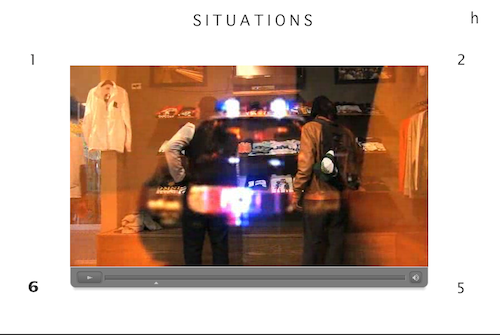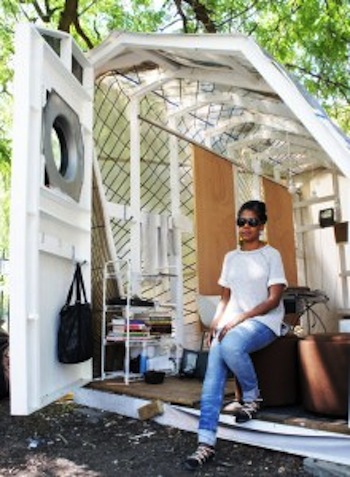What Does Somethingness Afford?

After recently being prompted by the Naropa Jack Kerouac School of Disembodied Poetics, I watched Fred Moten’s lecture “An Ecology of (Eloquent) Things” on YouTube, which helped me begin to put some language to my thoughts of late. The ends of the spectrum I borrow from Moten go like this: on one end there’s something and on the other there’s nothing. I want to afford “nothing” the same generosity that Moten does in his lecture when he refers to poverty as the nothing that is a complicated something.
Poverty as in abjection, poverty as in penury, as without language, not negative capability but extreme incapability or incapacity. She was incapacitated, which also, as we know these days means, she was a “slut.” Or according to Florida police, for the body to stiffen when being physically subdued by police is to resist arrest. Nothing as in mutation, as in compelled to rapidly decay, as in erased, gone-ness, as in just dead. You already know their names, the poets [the women] found dead or others who just “up and die” (seemingly out of the blue) and the ones who must call to us, their hands open outstretched.
Or, as Claudia Rankine says in her collaborative video essay “Situations 6”: “And, you are not the guy. But still you fit the description because there is only one guy who is always the guy fitting the description.”
You can be a black boy and just walk down the street! What’s wrong with you?!!
You should try being a little less black.
Blackness is best when you can put it on and take it off. It’s best as a thing of convenience.
Something as in leisure, lightness, as in providence, as in patronage, abundance, or in Ronaldo V. Wilson’s words, “the possibility for neutral innocence.” My heart is expansive now. I am transcending now. I am unmuted with that fresh newly born smell. When I speak I speak into the clear hollow of your ear. You listen. How could you do anything but?
Don’t get me wrong, the JayZ/Coldplay show on New Years Eve at the Barclays Center was phenomenal and I love Rihanna as much as the next homo, but I can only afford them as the work of the poem if my body is soft, relaxed, and newly exfoliated, if its border crossing is never cause for alarm, its presence not already a threat.
[A friend snorts in dismissive laughter when I tell him I can’t go to the protest because I can’t afford to get arrested.]
When there is too much somethingness, let’s call it an overabundance, it can lead to the kind of nothingnessness that is not a somethingness but a nonsense. Not nonsense as in gibberish, which is not nonsense at all, but a refusal to contribute in an intentional way to the re-meaning making of the world, an irrelational act that has the guise of hyper-relationality.
Moten poses these sets of questions:
What is the armature, the arsenal of the poor, the one’s who in having nothing have everything? […] Why is there something rather than nothing? Why are there some things rather than no things? What is the relationship between something and nothing that animates our understanding of poverty, of the vernacular, of the common of their insurgent force, of their generative and incalculable wealth?
Maybe negative capability after all.
The rules and rituals of the apparatus want to carve our bodies, I believe, and create our speech. If I am doing my step-and fetch-it bojangle in the airport, I am a good black. I am a good black if I am playing by the rules, if I am telling you the stories you want to hear, and in the ways you want to hear them. The conditions of nothingness, however, and their effects are the very conditions that compel the poetic utterance to reach toward not only a way of speaking that resists the machine, but also actual utterances, actual content (!) that disturb the nature of the machine and its effects.

What is the perspective of the living? Of aliveness? To paraphrase the American installation artist Torkwase Dyson when she was asked about choosing to become an artist: to be able to see or a way of looking that will allow you to make sense of the world. Following William Pope L. her visionary performances challenge our notions of urban space, the environment, our cultural stasis, and identity. In one installation piece, "Studio South Zero (SSZ)," she builds a “solar powered modular sculpture… to occupy underutilized urban places and transform them into eco-friendly space for art and ideas.” I’m fascinated by the underlying questions here about privilege, continued existence, and cultural assumptions around material, the sun, and racial context. Something generated in the (by the?) nothingness of the urban so-called ghetto. It is an ecstatic signaling toward the greater human project of living.
Poet and activist Dawn Lundy Martin earned a BA at the University of Connecticut, an MA at San Francisco...
Read Full Biography

